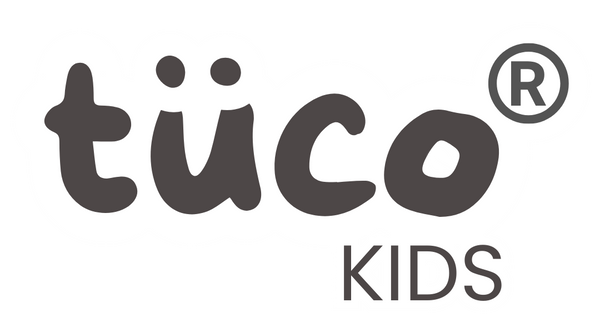
Home Remedies for Cough for Kids: Natural Soothers for Day and Night Relief
Cough is one of the most common childhood discomforts. It often occurs when the airways get irritated due to infections, allergens, dry air or mucus buildup. The body uses coughing as a protective response to clear these irritants and keep the lungs safe. While a mild cough is usually not dangerous, it can be uncomfortable and disrupt sleep, appetite and a child’s mood. Parents can support recovery at home using gentle and natural remedies that ease irritation, help mucus move out and keep the child comfortable during the day and night.
It is important to remember that home remedies provide relief, but if symptoms become severe, medical support is crucial.
Why Kids Develop Cough and How It Stays in the Body
Children’s immune systems are still developing, which makes them more vulnerable to viral infections. According to pediatric experts, most coughs in kids are caused by viral colds rather than bacteria. When a virus affects the nose or throat, mucus production increases. The mucus can drip backward into the throat, triggering a cough — especially when lying down.
Sometimes mucus becomes thick and sticky. When it does not move out, it stays in the chest and causes persistent coughing. The goal of home remedies is to thin the mucus, soothe airway irritation and support better breathing.
Over-treating or suppressing a cough entirely is not recommended because mucus needs an exit path. The ideal approach is comfort + clearance.
Daytime Home Remedies to Ease Cough
Daytime is when kids are more active, so remedies that open airways and loosen mucus work best.
1. Warm Fluids
Warm liquids thin mucus and soothe the throat. Try warm water, rice gruel, clear soups or apple water. Fluids prevent dehydration, which otherwise makes mucus thicker.
2. Honey for Children Above 1 Year
A small spoon of honey helps reduce cough frequency by coating the throat. Studies show honey can be as effective as some over-the-counter syrups for nighttime cough relief in older children. Not for babies under 1 year due to botulism risk.
3. Steam Therapy
Warm steam moisturizes nasal passages and helps release trapped mucus. A bowl of hot water or a bathroom steam session works well. Always supervise closely.
4. Gentle Outdoor Air (if possible)
Fresh air can improve breathing and reduce irritants inside the home, but avoid dusty or polluted environments.
5. Head Elevation While Sitting
Encourage the child to sit upright while reading or playing. It prevents mucus from pooling in the throat.
6. Lukewarm Haldi Water Sips
Turmeric contains curcumin which has natural anti-inflammatory effects that soothe the throat.
Nighttime Home Remedies for Better Sleep
Night is challenging because lying flat worsens post-nasal drip and coughing. These calming nighttime remedies can help:
1. Warm Bath Before Bed
A warm bath relaxes muscles, reduces congestion and improves sleep readiness.
2. Extra Pillow for Elevation
Slight elevation keeps mucus from irritating the throat at night.
3. Chest Percussion
Gently tapping the child’s back helps loosen stubborn phlegm.
4. Humidifier or Bowl of Warm Water in Room
Adds moisture to dry indoor air which can otherwise irritate the throat lining.
5. Warm Milk With Turmeric (if no dairy sensitivity)
Supports relaxation and throat comfort before sleep.
6. Comfortable Clothes
Breathable cotton prevents overheating and coughing due to sweat irritation. Helping kids sleep better is key because the body repairs faster during rest.
Foods to Support Comfort and Recovery
Nutrition affects how quickly children heal. Soft, hydrating and vitamin-rich foods are ideal:
- Fresh fruits like banana, pear, pomegranate and papaya
-
Steamed vegetables and lentil soups
-
Curd or yogurt for gut support (if no congestion concern)
-
Coconut water or ORS to maintain hydration
- Avoid chocolate, fried foods and cold beverages during cough episodes
Small meals, more frequently, help maintain energy.
Skin and Hygiene Care During Cough and Cold Episodes
Constant nose wiping, drooling, and coughing can irritate the skin around the mouth, cheeks and nose. Sweat when coughing and tossing can also cause dryness and discomfort. A gentle hygiene routine supports recovery:
- Clean the face and hands with a mild kids cleanser to remove mucus and bacteria
- Apply a kids moisturizer around the lips, cheeks and under the nose to prevent redness
- Bathe with a gentle kids body wash to maintain comfort and freshness
- Brush hair and cleanse the scalp with a child-safe shampoo if it becomes sweaty
- Keep bedding and soft toys regularly cleaned to reduce germ exposure
Kids skin is thinner, more sensitive and needs products free from harsh chemicals, strong fragrances and heavy actives. Gentle formulations maintain the skin barrier that supports overall comfort during illness.
Call a pediatrician if:
- The cough lasts more than 7 days
-
Breathing becomes fast or noisy
-
The child struggles to drink or swallow
-
There is high fever with cough
-
Coughing causes vomiting frequently
-
The child is under 6 months with persistent cough
-
There is chest pain or bluish lips
- Looks unusually drowsy or irritable
Constant monitoring helps prevent complications.
Coughs are common, especially in growing children. With warm liquids, steam breathing, comforting sleep routines and simple hygiene habits, parents can provide effective day and night relief at home. Most coughs improve within a few days, and a gentle care environment allows kids to rest and recover comfortably. Encouraging children to stay hydrated and engage in gentle activities can also aid in their recovery. By incorporating these methods into daily life, parents can support their children's well-being while building healthy habits for kids. Creating a calm atmosphere with plenty of opportunities for relaxation can further enhance their healing process.
Always remember that if a cough feels too strong, lasts too long or makes your child uncomfortable, a doctor’s advice is the safest step.

